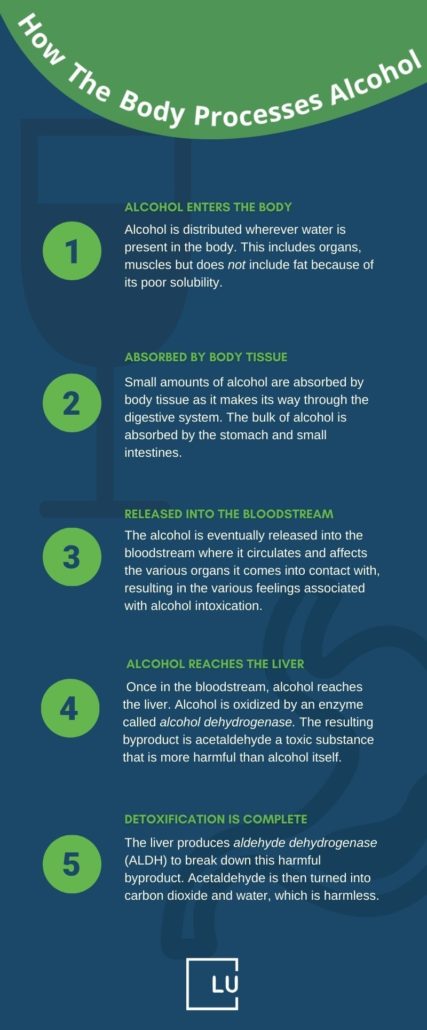What is severe alcohol abuse or alcoholism?
Alcoholism can be categorized as a type of mental health condition, but there is also a strong physical component to the condition as well. Alcoholism could trigger mental problems or worsen an existing condition, such as depression. When it comes to dealing with alcoholism, the most effective solutions involve treating the mental as well as the physical components of this condition.
According to the most recent edition of the Diagnostic and Statistical Manual of Mental Disorders (DSM-5) [1], alcoholism, or alcohol use disorder (AUD), is a diagnosable mental illness that happens in individuals who experience at least two of the 11 total criteria for this disorder. In fact, alcohol and mental illness have always been linked. Alcohol consumption can lead to mental health symptoms, and experiencing mental health distress without treatment can lead individuals to use alcohol as a way to “cope.”
According to the National Institute on Alcohol Abuse and Alcoholism (NIAAA) [2], alcohol use disorder (AUD), is a medical condition described by an impaired ability to control or stop alcohol use despite adverse occupational, social, or health consequences. It contains the conditions that some individuals refer to as alcohol dependence, alcohol abuse, alcohol addiction, and the common term, alcoholism.
Considered a brain disorder, alcoholism can be mild, moderate, or severe. However, lasting changes in the brain caused by alcohol misuse leads to alcoholism and make individuals vulnerable to relapse. The good news is that no matter how alcoholism may seem, evidence-based treatment with mutual-support groups, behavioral therapies, or medications-assisted treatment (MAT) can help individuals with alcoholism maintain and achieve recovery. According to a national survey, 14.1 million adults ages 18 and older1 (5.6 percent of this age group) had alcohol use disorder (AUD) in 2019.


Get Your Life Back
Find Hope & Recovery. Get Safe Comfortable Detox, Addiction Rehab & Mental Health Dual Diagnosis High-Quality Care at the We Level Up Treatment Centers Network.
Hotline (877) 378-4154What is mental health problem?
Mental health problems are characterized by a range of conditions that prevent an affected person from interacting as normal with others and their environment. Some of the most common mental health issues include anxiety disorder, depression, bipolar disorder, eating disorders, obsessive-compulsive disorder (OCD), psychosis, schizophrenia, and personality disorder. This type of condition can seriously affect someone’s ability to deal with life, eventually getting so bad that the person may need to stay in long-term care.
There may be a great deal of embarrassment around mental health conditions, despite that over a quarter of the population will develop this type of problem at some point in their lives. The fact that such a stigma associated with mental health problems prevents many from getting help, meaning that they may try to self-medicate with substances such as alcohol.
Alcoholism as a Mental Disease
Is alcoholism a mental disease? The answer is yes. Alcoholism involves a physical addiction, but, as mentioned above, it also interferes with the individual’s mental state to such an extent that they may struggle to interact normally with their environment, so it is for this reason that it is referred to as a mental health problem or a mental disease. Along with the physical dependence, the person also has a psychological dependence, which means that they experience cravings and just cannot cope without alcohol. The need to continue with the behavior involves a mental compulsion, and it involves denial.
Why do some people become addicted to alcohol or other drugs while other people don’t?
Numerous risk factors come into consideration, including genetics, age, biology, social and environmental influences, but one aspect applies across the board: alcohol affects our brain’s reward center. When we eat good food, exercise, or listen to music, our brain releases bursts of dopamine, a feel-good chemical that urges us to repeat the activity. Research shows that individuals who are more susceptible to addiction—as well those who are genetically susceptible to certain mental health disorders—likely have lower levels of dopamine in their brains. These biological differences in brain chemistry are not choices.
Research also shows that when the brain reward centers for these people are bombarded with alcohol-induced levels of dopamine, the resulting pleasure, and cues linked to drinking alcohol “teach” the brain to seek drugs at the expense of healthier activities. In short, the need for alcohol becomes hardwired in the brain, to the point that the brain can’t differentiate between healthy rewards and drug rewards.
According to the National Institute on Drug Abuse (NIDA)[3], this is the main reason why an individual who abuses alcohol feels flat, without motivation, depressed, and lifeless and is unable to enjoy things that were once pleasurable. The individual needs to keep drinking alcohol to experience even a normal level of reward. As a result, this only makes the problem worse, a vicious cycle.

Alcoholism and Self-medication
It is common for those with mental health problems to turn to alcohol to escape. The person may be completely unaware that their symptoms are due to an underlying condition; they might know that they feel a bit better about things when they drink. In the beginning, alcohol can be effective at helping someone hide from their problems. However, by the time the person realizes that drinking is making things much worse, they are usually already well on their way to alcohol addiction. A significant number of alcoholics would fall into the category of self-medicating, but they may be completely unaware that this is what they are doing.
Get Help. Get Better. Get Your Life Back.
Searching for Accredited Drug & Alcohol Rehab Centers Near You? Or Mental Health Support?
Even if you have failed previously, relapsed, or are in a difficult crisis, we stand ready to support you. Our trusted behavioral health specialists will not give up on you. Call us when you feel ready or want someone to speak to about therapy alternatives to change your life. Even if we cannot assist you, we will lead you wherever you can get support. There is no obligation. Call our hotline today.
FREE Addiction Hotline – Call 24/7Alcoholism as a Trigger for Mental Disease
Many alcoholics who go on to develop a dual diagnosis or co-occurring alcohol use disorder with mental illness do not start with any type of mental health problem. They fall into alcohol addiction for other reasons, so as alcohol is not only a toxic substance for the body but for mental health as well, it means that the person can develop a problem like alcohol-induced depression. In this situation, the person’s condition will usually be resolved once they stop the substance abuse.
When was alcoholism recognized as a mental disease and not just “drunkenness”?
Alcoholism wasn’t always seen as a disease needing treatment, and the American Medical Association’s (AMA) work was at the forefront of changing how the court system treated and viewed those who could not control their alcohol consumption.
The largest association of medical professionals – the American Medical Association (AMA) declared that alcoholism was an illness in 1956. In 1991, the AMA further endorsed the dual classification of alcoholism by the International Classification of Diseases under both psychiatric and medical sections.
Now, the modern disease theory of alcoholism states that problem drinking is sometimes caused by a disease of the brain, characterized by altered brain structure and function. According to the American Medical Association (AMA), over the years, the U.S. Supreme Court has looked to AMA policies and an amicus brief to help it first establish that alcoholism is a disease.
The U.S. Supreme Court’s first reference to AMA policy defining alcoholism as a disease came in a dissenting opinion in a case the majority decided not to consider. The 1966 case, Budd v. California, posed whether it is constitutional for California to punish someone who suffers from alcoholism, not just someone who periodically voluntarily overindulges.
Does the medical community recognize alcoholism as a disease?
Yes. Since 1956, the American Medical Association (AMA) [5] has identified alcoholism as a disease characterized by compulsive decision-making, impulsive behavior and relapse. The AMA’s disease theory of alcoholism is based on the following criteria:
- Does not go away or heal on its own
- Exhibits observable signs or symptoms
- Biological in nature (illness exists in and of itself)
- Has a predictable timeline of development and recovery
- Is progressive (can get worse—even fatal—if left untreated)
Perhaps, one of the challenges in recognizing alcoholism as a disease is it just doesn’t seem like one. It doesn’t sound, look, smell, and it certainly doesn’t act like a disease. To make matters worse, alcoholics deny it exists, and they often resist treatment.
Alcoholism has been recognized for many years by professional medical organizations as chronic, primary, progressive, and sometimes deadly. The National Institute on Drug Abuse (NIDA) offers a detailed and complete definition of alcoholism, but perhaps the most simple way to define it is a mental obsession that causes a physical compulsion to drink.
First-class Facilities & Amenities
World-class High-Quality Addiction & Mental Health Rehabilitation Treatment
Rehab Centers TourRenowned Addiction Centers. Serene Private Facilities. Inpatient rehab programs vary.
Addiction Helpline (877) 378-4154Proven recovery success experience, backed by a Team w/ History of:
15+
Years of Unified Experience
100s
5-Star Reviews Across Our Centers
10K
Recovery Success Stories Across Our Network
- Low Patient to Therapist Ratio
- Onsite Medical Detox Center
- Comprehensive Dual-Diagnosis Treatment
- Complimentary Family & Alumni Programs
- Coaching, Recovery & Personal Development Events
How do mental illnesses (namely depression) and alcoholism play into each other?
According to the National Institute on Alcohol Abuse and Alcoholism (NIAA) [6], given that symptoms of depression co-occur with alcohol dependence in about 80 percent of patients and that 30 to 40 percent of alcohol-dependent men and women struggle from an independent major depressive episode during their lifetime.
Most people who suffer from depression, especially those who have not been properly diagnosed, usually turn to alcohol to escape and self-medicate. Desperate to feel better or cover up the pain, even for a short time. People who suffer from depression often use the pleasurable and numbing effects of alcohol for that purpose. Alcohol abuse is dominant among people who struggle with depression. Drinking alcohol may increase depression, anxiety, and other mental health condition. This is according to the Center for Disease Control and Prevention (CDC) [7].
Alcohol is a central nervous system (CNS) depressant that slows the body down. Researches have consistently shown that drinking alcohol increases both the duration and the severity of depressive episodes. Alcohol also increases the frequency, possibility, and severity of suicidal thoughts. It can also cause other stressors in life, such as work and work problems that worsen depression.

How is treatment for alcohol and drug abuse different from mental health treatment?
Many of the same treatment programs and therapies are used to address mental health and substance use disorders. In fact, many treatment addictions and mental health professionals are integrated providers trained in both. A comprehensive program to integrated treatment can also be delivered by a multidisciplinary team of professionals and clinicians working together on an cleint’s treatment plan.
Some differences do exist between the two types of treatment. Mental health treatment often focuses on exploring a person’s thoughts, feelings, and behaviors, focusing on improving those feelings through one-on-one counseling or group therapy. This type of treatment often includes psychotherapy paired with medication.
However, integrated treatment for alcohol use disorders and mental health disorders focuses on mind, body, and spirit. Components that are typical of the treatment of alcohol use disorders (and parallel components for the treatment of mental health disorders) usually include:
Assessment – The treatment provider performs an initial evaluation, including a medical and mental screening and full-use history. This initial evaluation is used to create an individualized treatment plan. continuous assessments are needed to ensure treatment needs are met.
Stabilization – Detox from alcohol or other substances can be uncomfortable, dangerous, and even life-threatening when unsupervised. Alcohol addiction treatment providers should provide medical observation during the detox process and medication to ease the discomfort of withdrawal and cravings. Stabilization, frequently with medications, is also a crucial first step in addressing co-occurring mental health disorders.
Education – Understanding the diseases of alcoholism and co-occurring disorders is vital for dispelling myths about these diseases and helping clients shed feelings of shame and guilt.
Behavioral therapy – Both one-on-one and group therapy can help patients explore issues and find alternative ways of thinking to influence future behaviors positively.
Fellowship – Twelve Step Facilitation, an evidence-based therapy used in many addiction treatment programs, is rooted in the positive influence of fellowship and mutual support. You are not alone. Fellowship and group therapies are equally important in addressing mental health disorders.
Continuing Care – Because mental health and alcohol use disorders are chronic diseases, the ongoing management of symptoms is a necessary aspect of the recovery process. While there is no cure, these conditions can be effectively managed just like other diseases.
World-class, Accredited, 5-Star Reviewed, Effective Addiction & Mental Health Programs. Complete Behavioral Health Inpatient Rehab, Detox plus Co-occuring Disorders Therapy.
CALL (877) 378-4154End the Addiction Pain. End the Emotional Rollercoaster. Get Your Life Back. Start Drug, Alcohol & Dual Diagnosis Mental Health Treatment Now. Get Free No-obligation Guidance by Substance Abuse Specialists Who Understand Addiction & Mental Health Recovery & Know How to Help.
Alcoholism is a Progressive Disease
Alcohol addiction is a progressive mental disease. It has been said that if an individual stays sober for 15 years and relapses, it will quickly become as bad as it would’ve been if he had never stoped drinking. While there is no scientific data to support this contention, it is a typical experience that many of us have seen. Just because a person quit, drinking doesn’t mean he stopped thinking. If we are not actively getting better, we are passively getting worse.
Ultimately, alcoholism is a destructive disease. It either takes your life or the best parts of it. It kills you whether you die or not. Alcoholism will always get worse if we don’t do things to keep it at bay. The good news is, recovery is also progressive! Recovery is a state of wellness, is progressive and, if pursued continually, produces life.
The more we do it, the better we get at it. The more mistakes we make, the more learning opportunities we experience. We must allow our recovery to take on a life of its own.
When it comes to alcoholism, focus less on what it is and focus more on what we can do about it. Regardless of the terrible prognosis these conditions present, if you are willing to change and ask your Higher Power to help you, they can never hurt you again.

Find the Right Treatment at We Level Up NJ
Now that we’ve answered the question, is alcoholism a mental disease, and it’s backed up and recognized by medical professionals, it will give us a new view and perspective on how to deal with individuals struggling with this mental disease.
If you or someone you love is struggling with alcoholism, get them the safest help they need and deserve. We Level Up NJ offers a safe and medically assisted Dual Diagnosis Alcohol and Mental Health Disorder Treatment. Contact our team today!
Experience Transformative Recovery at the We Level Up Treatment Center.
See our authentic success stories. Get inspired. Get the help you deserve.



Start a New Life
Begin with a free call to an addiction & behavioral health treatment advisor. Learn more about our dual-diagnosis programs. The We Level Up treatment center network delivers various recovery programs at each treatment facility. Call to learn more.
- Personalized Care
- Caring Accountable Staff
- World-class Amenities
- Licensed & Accredited
- Renowned w/ 5-Star Reviews
We’ll Call You
Sources:
[1] DSM V – https://www.ncbi.nlm.nih.gov/pmc/articles/PMC3683251/
[2] NIAAA – https://www.niaaa.nih.gov/publications/brochures-and-fact-sheets/understanding-alcohol-use-disorder
[3] NIDA – https://www.drugabuse.gov/publications/drugs-brains-behavior-science-addiction/drugs-brain
[4] ]5] AMA – https://www.ama-assn.org/delivering-care/public-health/court-listened-ama-defining-alcoholism-disease-not-crime
[6] NIAA – https://pubs.niaaa.nih.gov/publications/arh40/109-117.htm